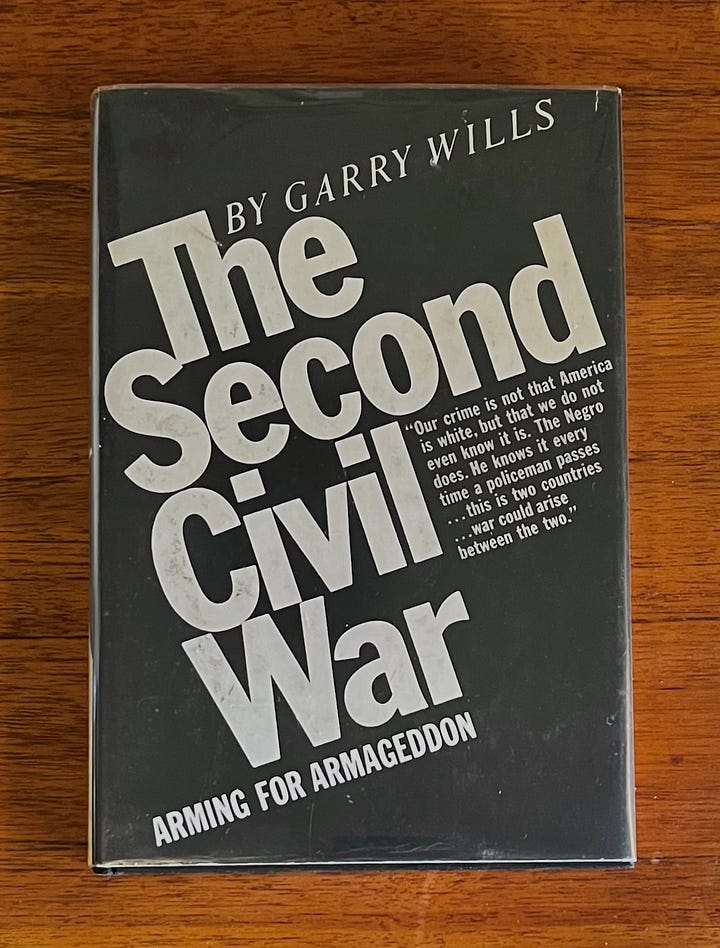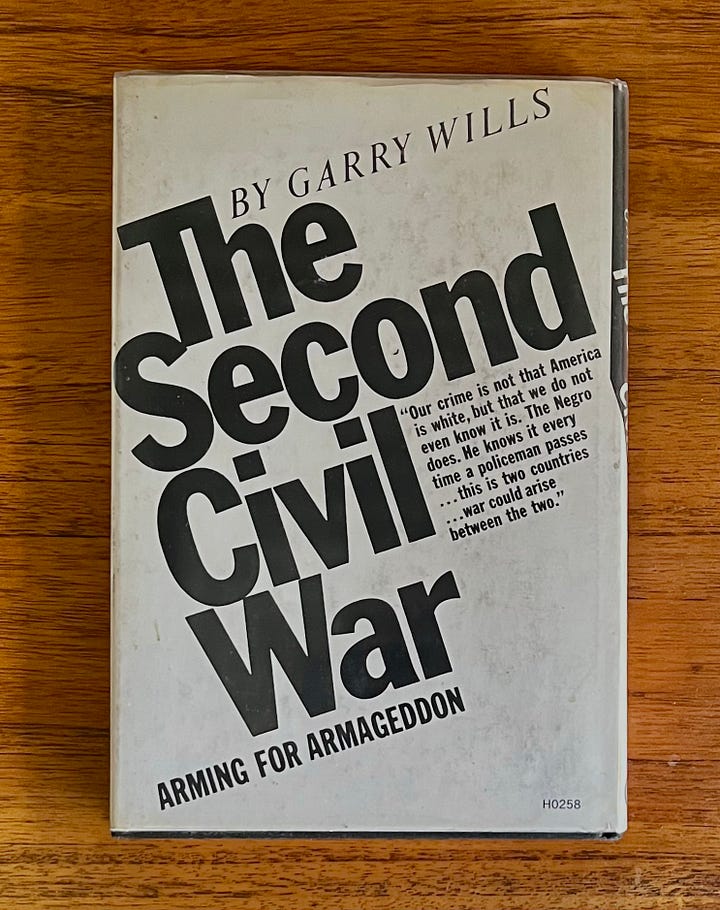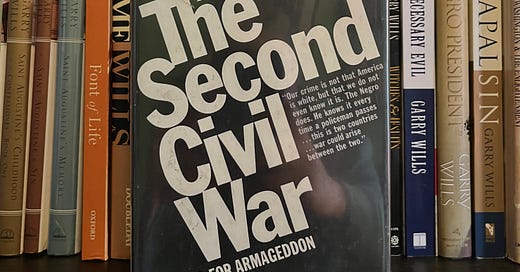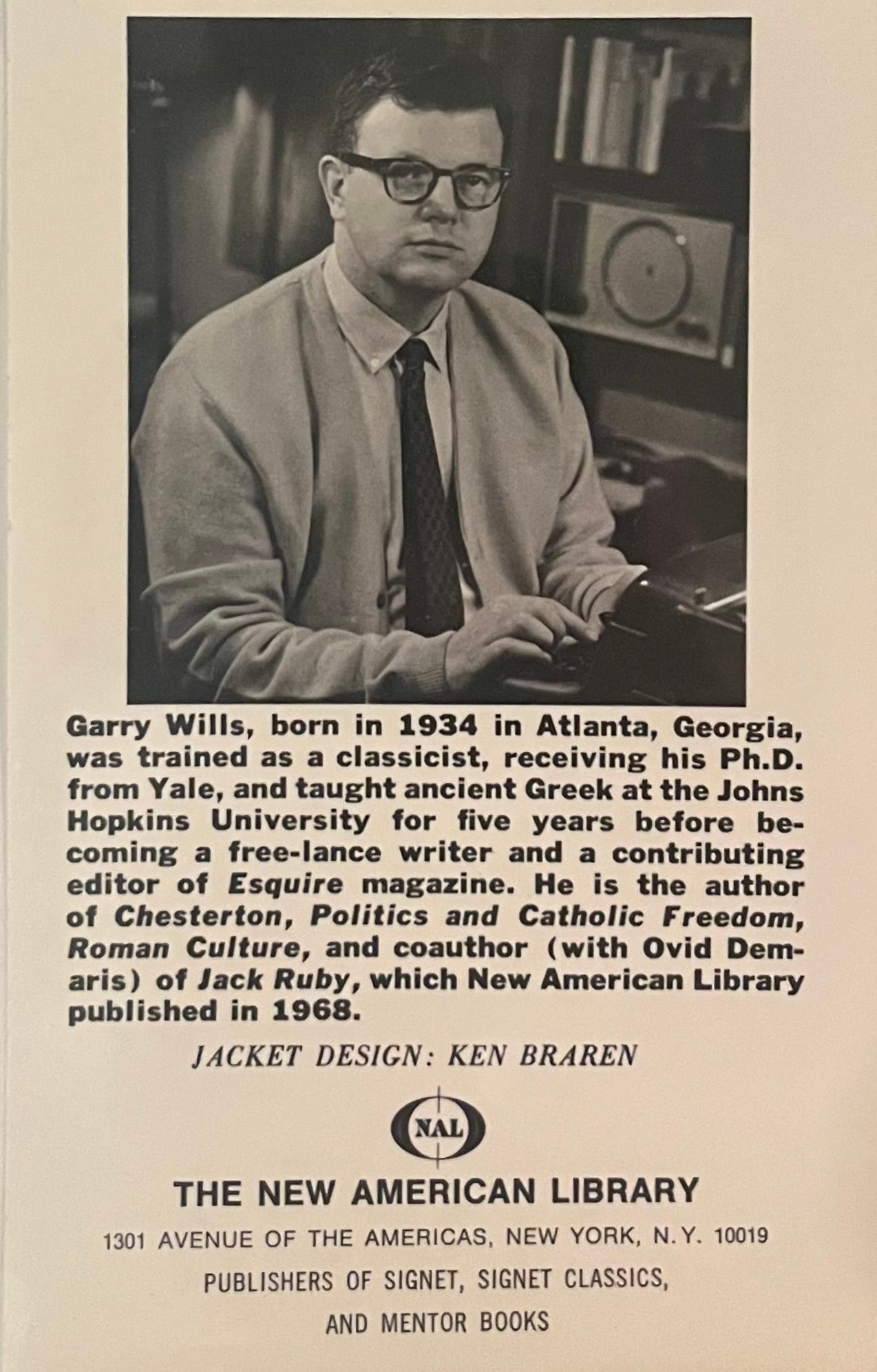Garry Wills, The Second Civil War: Arming for Armageddon (1968)
A key text in understanding the great writer's break with the right.
When I began Friends and Enemies, I promised a series, “Personal Archives,” that would be published Monday mornings and draw from my personal library and private collection of rare, first edition, or simply beautiful books, and, occasionally, letters and other literary ephemera. You can read the first installment here.
I can tell that one challenge when composing these Personal Archives posts will be to not write too much—most of all because they are meant to be visual offerings, not essays. That especially is the case with today’s selection, a first printing of Garry Wills’s under-appreciated 1968 work of reportage, The Second Civil War: Arming for Armageddon. This particular copy is in very fine condition, with a jacket design that I love; the front and back of the all black-and-white cover mirror each other, and features an ominous passage from the prologue about America being “two countries,” one black and one white, and that “war could arise between the two.”


What caused the usually even-keeled Wills to use such language? The book began as an article for Esquire, an assignment with what he believed was a pleasingly limited purview: “a report on the preparations being made for future riots,” coming in at about ten thousand words or so. But soon, as Wills went from Washington to Detroit to L.A., talking to cops across the country, as he went on ride-alongs and pondered what he was hearing and seeing, his alarm grew, and so did the scope of the project. Wills’s reporting on the way police departments were “arming for Armageddon” became, as he puts it, his “odyssey”—though “an odyssey in reverse”:
…one that made me lose, in some measure, my home, the things I had taken for granted, had thought of as familiar and safe—as, oddest of all, mine. It had its comic side, though I was in no mood for laughing as I went from one command post to another in what seemed a large army’s combat system. I suppose everyone, sooner or later, gets the feeling that, whatever his earlier experience of the country, he finally “discovering America.” But this was a discovery that seemed more like lobotomy: as I found out more things about my country, I knew it less. I was discovering an alien, armed place, not at all the one I had thought I was living in; one I knew continually less about, and admired less. My great “discovery” seemed all a process of erasure.
The power of these lines, the shock and disillusionment they record, give a sense of why The Second Civil War is such a key text in Wills’s long and astonishingly productive career—it provides unambiguous confirmation of his break with the rightwing National Review, where he had gotten his start as a writer, over the Vietnam War, yes, but also their positions on race, the Civil Rights Movement, and “law and order.” In some ways, that’s not surprising; Wills was still a young man in 1968, just thirty-four years old, and not yet fully formed, as can be seen in the author photo for The Second Civil War:
Still, this was only a few years after Wills, in the May 21, 1963 issue of National Review, had published a highly critical review of James Baldwin’s The Fire Next Time, “What Color is God?”—and yet, in The Second Civil War, it a quote of Baldwin’s that provides the book’s epigraph. What happened? The Second Civil War tells part of the story, and I hope to tell the rest of it, or at least more of it, in some of the writing about Wills I’m working on now. He turns ninety next month—May 22—and there’s no better time to consider what made him the most singular American political writer of the second half of the twentieth century, and beyond.






Have you seen this wide ranging conversation from a few years ago with him? I think this was a few months after his wife had passed.
https://youtu.be/0RzqfOeohvM?si=WTC9ajiLr8T4nVtc
Just the Franklin Gothic Condensed makes me happy. Ah, enlightened times! </fontnerd>